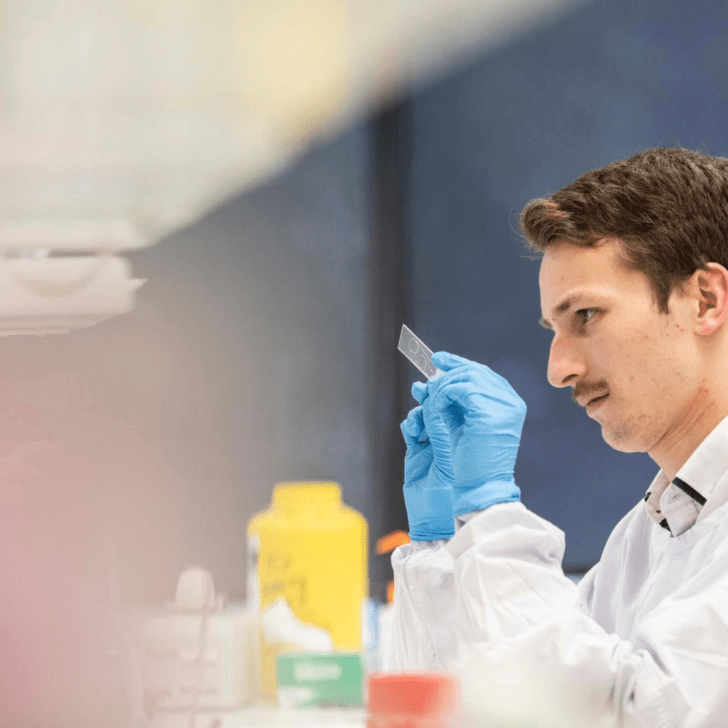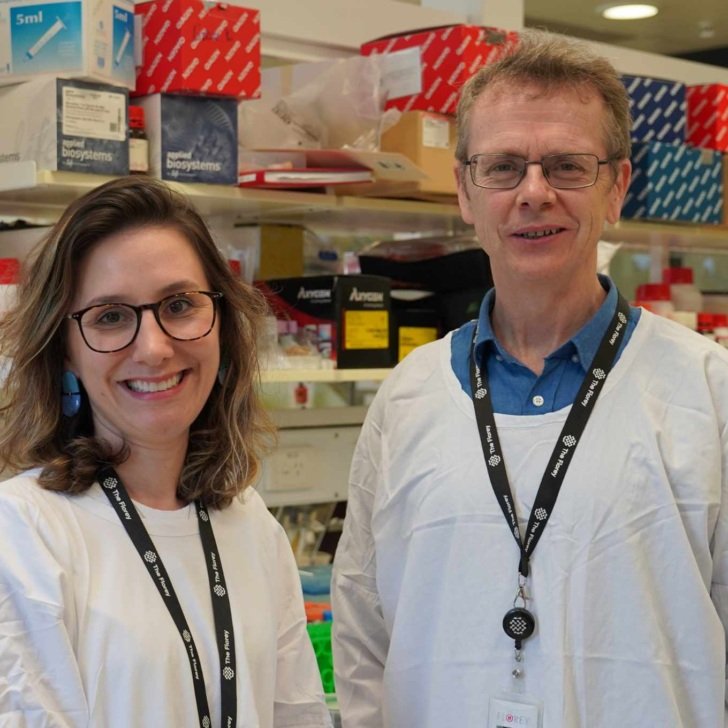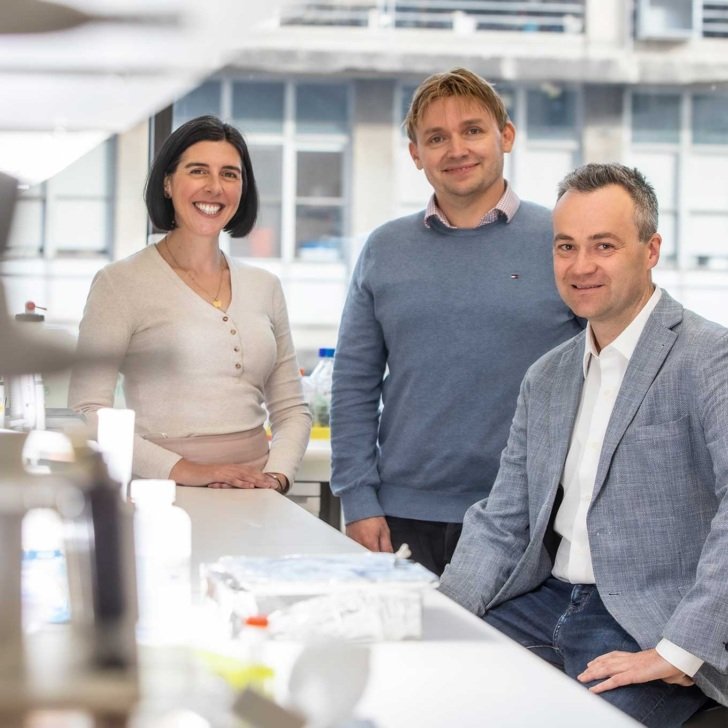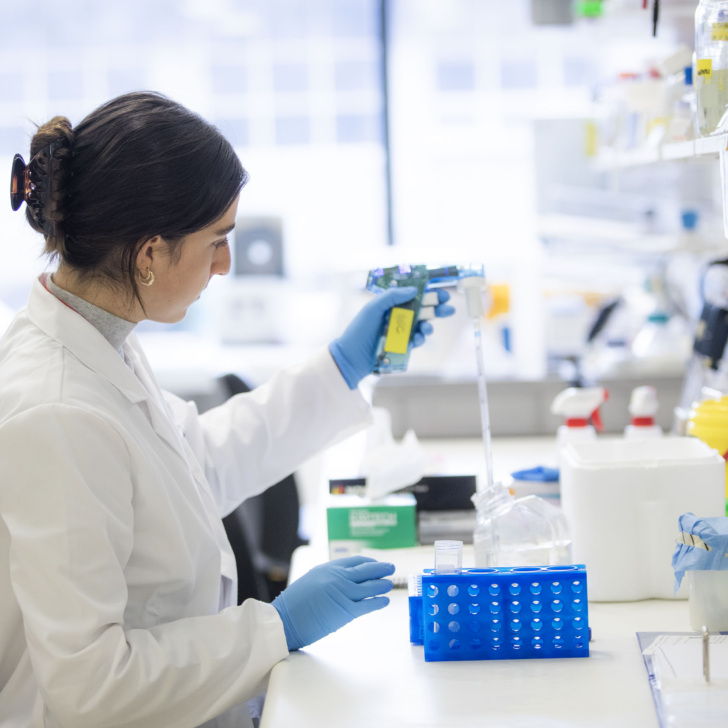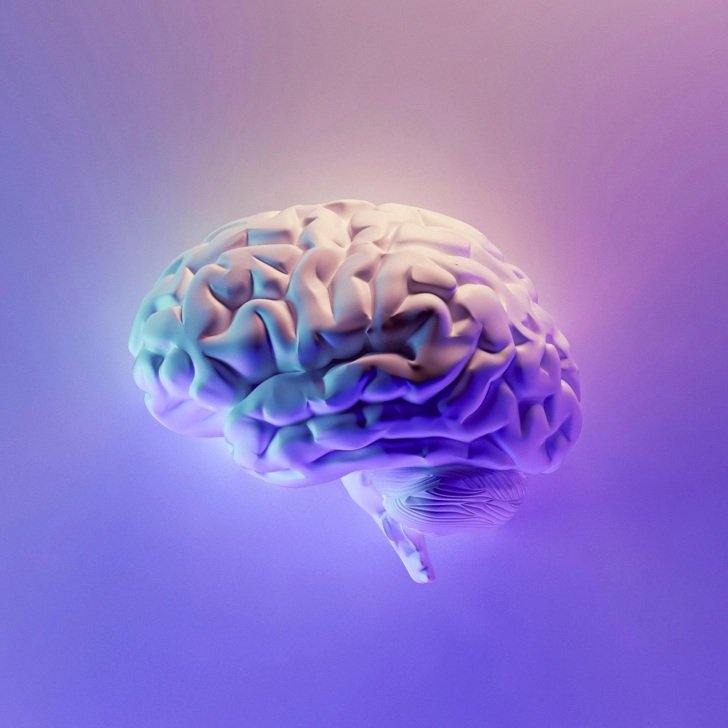
Huntington’s disease
Huntington’s disease is a neurological condition that gradually affects a person’s physical, emotional and cognitive function. It is caused by a variation (‘genetic stutter’) in a person’s genome, which is passed down from parent to child. The symptoms of Huntington’s usually develop as a person approaches middle age and gradually worsen over time. Motor symptoms typically begin with jerky movements or twitching known as ‘chorea’.
If a person’s parent has Huntington’s, they have an approximately 50 per cent chance of inheriting the gene mutation causing the disease. There is currently genetic testing available to see if an individual has inherited the gene variation from their parent or not before symptoms appear. Once symptoms begin, the life expectancy for someone with Huntington’s is a further 10 to 25 years, although quality of life may be severely affected, particularly in later stages of the disease. However, approximately 5 per cent of patients have juvenile onset, which progresses far more rapidly.
How The Florey is making a difference
Our research into Huntington’s disease, led by Professor Anthony Hannan and colleagues, has shown for the first time that depression can be modelled, and is reduced by enhanced mental and physical activity. We have also identified key molecules involved in the cognitive symptoms (culminating in dementia) and psychiatric elements (the most common of which is depression) of the disorder.
As well as providing the first evidence that mental and physical activity can be beneficial, we have also shown that high levels of chronic stress can be detrimental. Furthermore, we have successfully tested new preclinical therapeutic approaches, which will be taken into new clinical trials. This will have implications not only for this disease, but also for the understanding and treatment of dementia and depression in the wider community.
Professor Hannan’s research team discovered a drug that has beneficial effects in their preclinical model of Huntington’s disease. They showed that the drug not only benefits mitochondria (the energy sources or ‘batteries’ of cells) but also the synapses that use the neurotransmitter glutamate. This discovery has led to a new clinical trial, with Australian colleagues, aimed at delaying the onset of Huntington’s disease in those with the gene mutation.
The team were also the first to discover that gut microbes (the ‘microbiota’ and their ‘microbiome’) are altered in Huntington’s disease. This discovery has led to world-first studies on the ‘microbiota-gut-brain axis’ in Huntington’s disease, and testing of new therapies. Most recently the team has shown that a high-fibre diet has therapeutic effects in a preclinical model of Huntington’s disease and they are testing other novel approaches targeting the gut microbiome.
Researcher spotlight
‘Microbiota-gut-brain axis’ in Huntington’s disease
Dr Carolina (Carol) Gubert from the Epigenetics and Neural Plasticity Group has pioneered a number of new studies on the ‘microbiota-gut-brain axis’ in Huntington’s disease. This includes the first preclinical study on fecal microbiota transplant (FMT) in Huntington’s disease, and the first dietary intervention (high-fibre diet) targeting the gut microbiome, which has shown therapeutic effects.
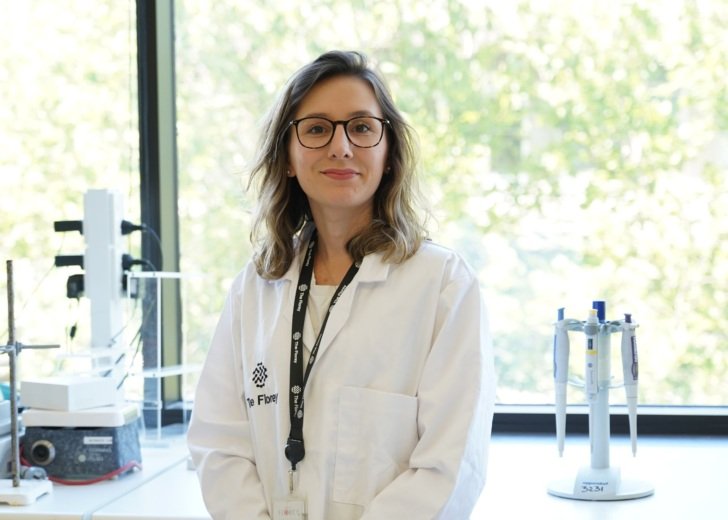
Research projects
- Experience-dependent plasticity modulating cognitive deficits in schizophrenia
- Gene-environment interactions modulating dementia and depression in a tandem repeat disorder
- Therapeutic approaches to dementia and depression in Huntington’s disease
- Transgenerational epigenetic inheritance modulating brain function, behaviour and cognition
Research groups
More information
Further information can be accessed through the Better Health Channel, Huntington’s Victoria on 1800 063 501, or through the Huntington’s organisation in your state. While The Florey researches Huntington’s disease, we are unable to offer medical advice. Please contact your health practitioner if you require medical assistance.
Latest news
Latest Florey news on Huntington’s disease
